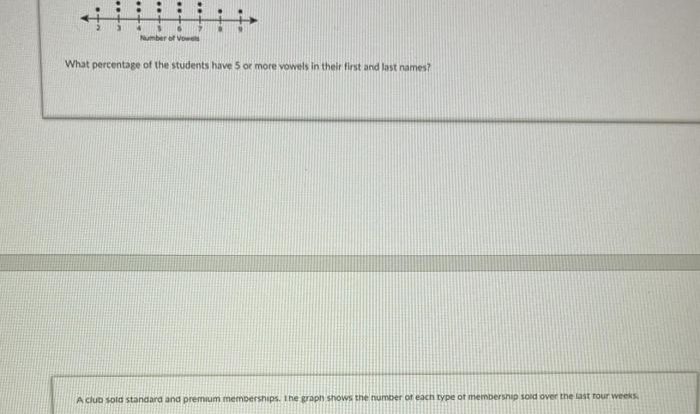Joe is a medicare participant – As Joe embarks on his Medicare journey, let’s unravel the complexities of this healthcare program. Joe’s Medicare participation opens up a world of benefits and potential challenges, and we’re here to navigate this terrain with clarity and understanding.
Medicare’s comprehensive coverage, vast provider network, and intricate billing system can be overwhelming. However, with our expert guidance, Joe can maximize his benefits and minimize any hurdles along the way.
Medicare Overview

Medicare is a federal health insurance program for people aged 65 and older, younger people with certain disabilities, and people with End-Stage Renal Disease (ESRD). Medicare helps cover the cost of healthcare services, including hospital stays, doctor visits, and prescription drugs.Medicare
is divided into four parts:
Part A
Hospital insurance
Part B
Medical insurance
Part C
Joe is a Medicare participant who recently enrolled in a Medicare Advantage plan. To understand his new coverage, he sought guidance from unit 6 level f vocab answers , an online resource that provides clear explanations of Medicare terminology. This helped Joe navigate the complexities of his plan and make informed decisions about his healthcare.
Medicare Advantage
Part D
Prescription drug coverage
Joe’s Medicare Participation
Joe’s participation in Medicare as a beneficiary significantly influences his healthcare landscape. This federally funded health insurance program offers several implications, potential benefits, and challenges, while also impacting his financial obligations related to medical expenses.
Benefits of Medicare Participation
- Access to Comprehensive Coverage: Medicare provides comprehensive coverage for various healthcare services, including hospital stays, physician visits, preventive care, and prescription drugs. This ensures that Joe has access to essential medical care when needed.
- Financial Protection: Medicare helps protect Joe from potentially high medical expenses. The program covers a significant portion of healthcare costs, reducing his out-of-pocket expenses and providing financial stability.
- Peace of Mind: Knowing that Medicare provides a safety net for healthcare expenses can give Joe peace of mind, allowing him to focus on his health and well-being without worrying excessively about financial burdens.
Challenges of Medicare Participation
- Limited Coverage: While Medicare provides comprehensive coverage, it does have limitations. Certain services, such as long-term care or dental care, may not be covered, requiring Joe to seek additional insurance or pay out-of-pocket.
- Premiums and Deductibles: Medicare participants may be responsible for paying monthly premiums and deductibles, which can vary depending on the coverage options chosen. These costs can add to Joe’s overall healthcare expenses.
- Complexity: Medicare can be a complex program to navigate, with multiple parts and eligibility requirements. Joe may need assistance understanding his coverage and accessing the benefits he is entitled to.
Financial Impact of Medicare
Medicare significantly impacts Joe’s healthcare expenses. The program covers a substantial portion of his medical costs, reducing his financial burden. However, he may still be responsible for premiums, deductibles, and copayments. The financial impact of Medicare will vary depending on Joe’s specific healthcare needs and the coverage options he chooses.
Medicare Services and Providers: Joe Is A Medicare Participant
Medicare offers a comprehensive range of healthcare services to eligible individuals. These services are categorized into different parts, each covering specific aspects of healthcare. It’s important to understand the various Medicare services and the providers who offer them to make informed decisions about your healthcare needs.
Medicare-Covered Services, Joe is a medicare participant
Medicare covers a wide array of healthcare services, including:
- Hospital care (Part A)
- Medical insurance (Part B)
- Prescription drug coverage (Part D)
- Medicare Advantage plans (Part C)
- Supplemental Medicare insurance (Medigap)
Types of Medicare Providers
Medicare services are provided by a network of healthcare professionals and facilities. These providers include:
- Physicians
- Hospitals
- Nursing homes
- Home health agencies
- Skilled nursing facilities
Each type of provider specializes in specific areas of healthcare, ensuring that Medicare beneficiaries have access to a comprehensive range of services.
Finding and Selecting Medicare-Approved Providers
To ensure the quality of care, Medicare has established standards and requirements that providers must meet to participate in the program. Medicare beneficiaries can find and select Medicare-approved providers using the following methods:
- Medicare’s online provider directory
- Contacting Medicare directly
- Consulting with local healthcare professionals or organizations
Choosing Medicare-approved providers ensures that you receive high-quality care from qualified professionals who adhere to Medicare’s standards.
Medicare Claims and Billing

The Medicare claims process involves submitting a claim to Medicare for reimbursement of covered healthcare services. This process includes using specific Medicare billing codes to describe the services provided and the associated charges. Understanding the claims process and billing codes is crucial for accurate and timely reimbursement.
Medicare Billing Codes
Medicare billing codes are standardized codes used to describe medical services and procedures. These codes are assigned by the Centers for Medicare & Medicaid Services (CMS) and are used by healthcare providers to communicate with Medicare about the services they have provided.
The two main types of Medicare billing codes are:
- Healthcare Common Procedure Coding System (HCPCS) codes:These codes are used to describe specific medical procedures, services, and supplies.
- International Classification of Diseases, Tenth Revision, Clinical Modification (ICD-10-CM) codes:These codes are used to describe diagnoses and conditions.
Common Medicare Billing Errors
Common Medicare billing errors include:
- Using incorrect or invalid billing codes
- Submitting duplicate claims
- Failing to provide complete and accurate patient information
- Billing for services not covered by Medicare
Avoiding Medicare Billing Errors
To avoid Medicare billing errors, healthcare providers should:
- Use the correct and most up-to-date billing codes
- Submit claims promptly
- Provide complete and accurate patient information
- Be aware of the Medicare coverage guidelines
- Regularly review claims for errors
Medicare Appeals and Grievances

If you disagree with a Medicare decision, you have the right to appeal. The Medicare appeals process is a multi-step process that allows you to challenge a decision made by Medicare. You can file an appeal if you believe that Medicare has made a mistake or if you believe that you are being denied benefits that you are entitled to.There
are four levels of appeal:1.
-
-*Reconsideration
This is the first level of appeal. You must file a reconsideration request within 60 days of receiving the decision that you are appealing.
- 2.
- 3.
- 4.
-*Hearing
If your reconsideration request is denied, you can request a hearing. A hearing is held before an administrative law judge (ALJ). The ALJ will review the evidence and make a decision.
-*Appeals Council Review
If you disagree with the ALJ’s decision, you can request an Appeals Council review. The Appeals Council is a group of experts who review ALJ decisions.
-*Federal Court Review
If the Appeals Council denies your request for review, you can file a lawsuit in federal court.
Filing a Medicare Grievance
If you have a complaint about Medicare, you can file a grievance. A grievance is a formal complaint that you can file with Medicare. You can file a grievance if you believe that you have been treated unfairly or if you believe that Medicare has not followed its own rules.To
file a grievance, you can call Medicare at 1-800-MEDICARE (1-800-633-4227). You can also file a grievance online at the Medicare website.
Resources for Resolving Medicare Disputes
There are a number of resources available to help you resolve Medicare disputes. You can contact the Medicare Ombudsman for help with filing an appeal or grievance. You can also contact the National Senior Citizens Law Center for legal assistance.
Medicare Fraud and Abuse

Medicare fraud and abuse involve any intentional deception or misrepresentation to obtain unauthorized benefits from the Medicare program. It undermines the integrity of the program and wastes taxpayer dollars.
Common types of Medicare scams include:
- Billing for services not provided
- Submitting false claims for higher reimbursement
- Prescribing unnecessary medications or services
- Offering “free” items or services in exchange for Medicare numbers
Consequences of Medicare fraud and abuse can include:
- Civil penalties
- Criminal charges
- Exclusion from the Medicare program
- Loss of Medicare benefits
FAQ Insights
What are the eligibility requirements for Medicare?
Generally, individuals aged 65 or older, certain younger individuals with disabilities, and people with End-Stage Renal Disease (ESRD) are eligible for Medicare.
What services are covered by Medicare?
Medicare covers a wide range of services, including hospital stays, doctor visits, preventive care, and prescription drugs.
How do I find a Medicare-approved provider?
You can use the Medicare website or call Medicare directly to locate providers in your area who accept Medicare.
